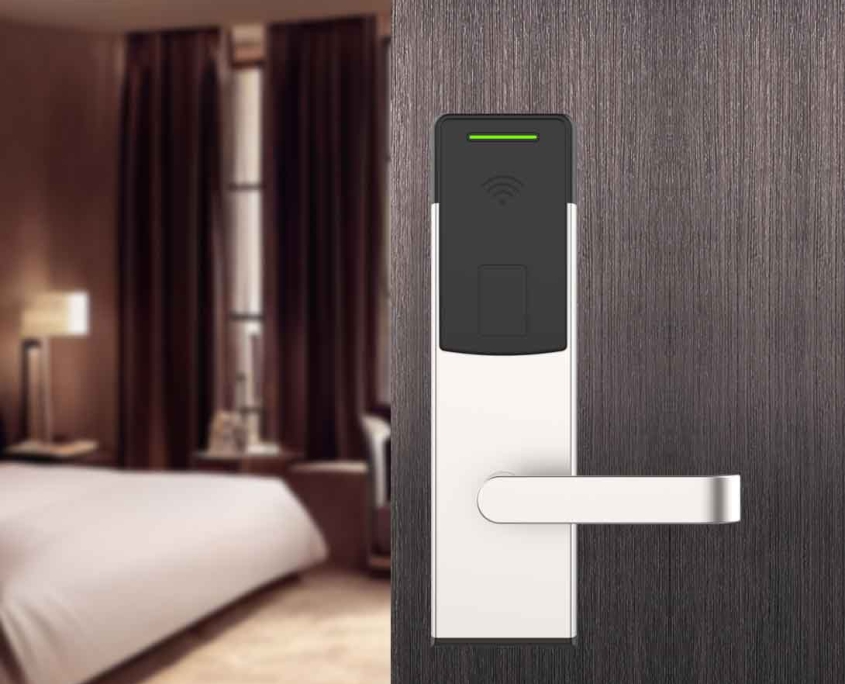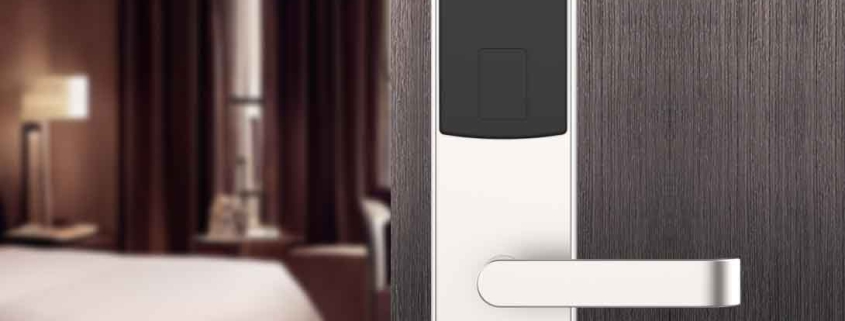How Hotel Locks Work: A Behind-the-Scenes Look at Access and Security
When you check into a hotel, the front desk hands you a keycard, a mobile key, or—in rare cases—an old-fashioned metal key. You swipe, tap, or turn it, and voilà—your door unlocks. But have you ever wondered how hotel locks actually work? What ensures that only you (and housekeeping) can enter your room? And what happens if the system fails?
In this article, we’ll break down the mechanics, technology, and security behind hotel locks, explaining everything in a way that’s easy to understand—no engineering degree required.
1. The Evolution of Hotel Locks: From Metal Keys to Smartphones
Hotel locks have come a long way since the days of simple metal keys. Here’s a quick timeline:
Traditional Mechanical Locks (Pre-1980s)
-
Used physical keys cut for each room.
-
Major drawback: If a key was lost or stolen, the hotel had to rekey the entire lock—a costly and time-consuming process.
-
Still found in some older motels and boutique hotels.
Electronic Keycard Locks (1980s–Present)
-
Introduced magnetic stripe cards (like credit cards) that could be reprogrammed.
-
Allowed hotels to change access codes easily when guests checked out.
-
Later upgraded to RFID (radio-frequency identification) cards (more secure).
Smart Locks & Mobile Keys (2010s–Present)
-
Guests can now unlock doors via smartphone apps (Bluetooth or NFC).
-
Some hotels use biometric scanners (fingerprint or facial recognition).
-
Enables remote check-in/check-out and temporary access for staff.
2. How Modern Hotel Locks Work
Today, most hotels use electronic locking systems, which rely on three main components:
Power Source
-
Most hotel locks are battery-powered (AA or lithium).
-
Some high-end hotels use hardwired locks with battery backups.
-
If batteries die, there’s usually a manual override key (hidden under a panel).
Control System
-
The lock communicates with the hotel’s Property Management System (PMS).
-
When you check in, the front desk assigns a unique code to your keycard or phone.
-
The system can deactivate lost keys instantly.
Locking Mechanism
-
When you present a valid key (card, phone, or code), the lock’s solenoid or motor releases the bolt.
-
Some locks also track who enters and when (audit trail).
3. Types of Hotel Locks in Use Today
A. Magnetic Stripe Keycards (Most Common)
-
Works like a credit card swipe.
-
Contains a unique encrypted code that expires at checkout.
-
Downside: Can be demagnetized by phones or magnets.
B. RFID Keycards (More Secure)
-
Uses radio waves (no swiping needed—just tap).
-
Harder to copy than magnetic stripe cards.
-
Found in mid-range to luxury hotels.
C. Mobile Key Access (Cutting-Edge)
-
Guests receive a digital key via the hotel’s app.
-
Unlock the door by holding your phone near the reader.
-
Brands like Marriott, Hilton, and Hyatt use this tech.
D. Keypad Locks (Budget & Extended-Stay Hotels)
-
Requires a PIN code instead of a physical key.
-
Often used in motels and Airbnb-style rentals.
E. Biometric Locks (High-Security Hotels)
-
Uses fingerprint or facial recognition.
-
Still rare but growing in luxury resorts and high-security properties.

4. How Hotels Prevent Unauthorized Access
Security is a top priority for hotels. Here’s how they keep your room safe:
Automatic Key Expiration
-
Your keycard stops working at checkout time.
-
If you extend your stay, the front desk reissues a new key.
Master Keys & Staff Access
-
Housekeeping has limited-time access (e.g., only during cleaning hours).
-
Managers carry emergency override keys for lockouts.
Audit Trails (Who Entered & When?)
-
Many locks record every entry, helping resolve disputes.
-
If something goes missing, hotels can check who accessed the room.
Deadbolts & Privacy Features
-
Most hotel doors have manual deadbolts for extra security.
-
Some locks have a “Do Not Disturb” mode that blocks staff keys.
5. What Happens If the Lock Fails?
Even the best systems can glitch. Here’s how hotels handle lock problems:
Dead Batteries
-
Staff can open the door with an emergency key.
-
Many locks blink a warning light when batteries are low.
Lost or Stolen Keys
-
The front desk deactivates the old key and issues a new one.
-
No need to change the lock—just reprogram it.
Power Outages
-
Battery-powered locks keep working.
-
Wired locks switch to backup batteries.
6. The Future of Hotel Locks
Technology keeps evolving. Here’s what’s coming next:
Predictive Key Systems
-
AI could assign room keys before you arrive.
-
Your phone might unlock the door as you approach.
Blockchain Security
-
Some hotels are testing decentralized key systems to prevent hacking.
Sustainable Locks
-
Solar-powered or kinetic energy locks (powered by door movement).
Final Thoughts
Hotel locks are far more sophisticated than they seem. From magnetic stripes to smartphone access, they balance convenience, security, and efficiency. Next time you unlock your hotel room, take a second to appreciate the tech keeping you safe!
What’s your preferred hotel lock type?
-
Old-school metal key
-
Keycard (swipe or tap)
-
Mobile phone key
-
Biometric scan









